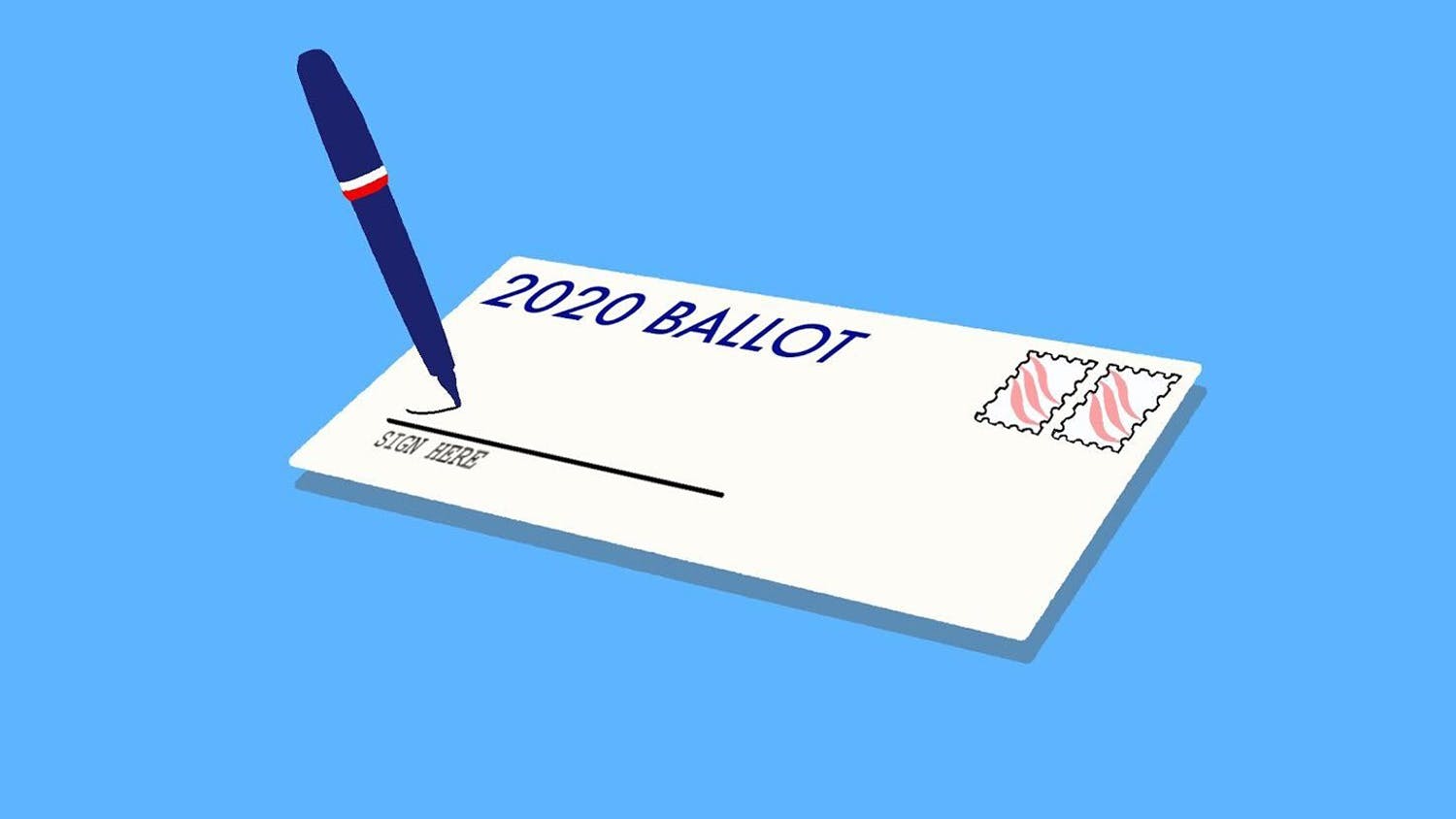The COVID-19 pandemic coincides with one of the most contentious — and critical — elections in modern American history. With America still in the grips of the pandemic and its accompanying restrictions, much of this year’s vote will take place by mail. For many Dartmouth students, kept away from campus by the College’s COVID-19 measures, voting by mail will be their only way to have a say in the political future of the place where, in more usual times, they live, study, work and base their lives.
New Hampshire students have faced no shortage of obstacles and confusion in their attempts to vote. The long-running saga of bills aiming, with the support of Republican governor Chris Sununu, to change the definition of domicile and, by extension, deny students the right to vote, has tentatively ended with a victory for student voting rights. But nationally, the legitimacy of the upcoming election is already being undermined. Between baseless attempts to delegitimize absentee voting — in a characteristic tweet, President Donald Trump stormed that “With Universal Mail-in Voting, 2020 will be the most INACCURATE & FRAUDULENT election in history” — and its forthright willingness to question the very democratic process, Trump’s White House has presented outright hostility to free and fair elections. On Wednesday, the president refused to commit to a peaceful transfer of power. He mused that “Get rid of the ballots and … we'll have a very peaceful — there won't be a transfer frankly. There will be a continuation. The ballots are out of control.”
Whatever your politics, those are words that should make any American shudder.
While individual members of this community may not be able to change the national political landscape, collectively we do have that power. We have the right to vote. With the uncertainty and disinformation swirling regarding this November’s vote, the usual invocation to vote takes on a new significance. Our very ability to vote may well depend on it.
So vote. And know your plan to vote — now. Twenty-six states have revealed that they will only count ballots that arrive on or before Nov. 3. One can assume that, with so much new electoral infrastructure, ballots may well take much longer to arrive than in a normal election year. Perhaps that delay will last until after election day. Don’t play with fire. Get in your vote.
The editorial board consists of opinion staff columnists, the opinion editors, the executive editors and the editor-in-chief.


